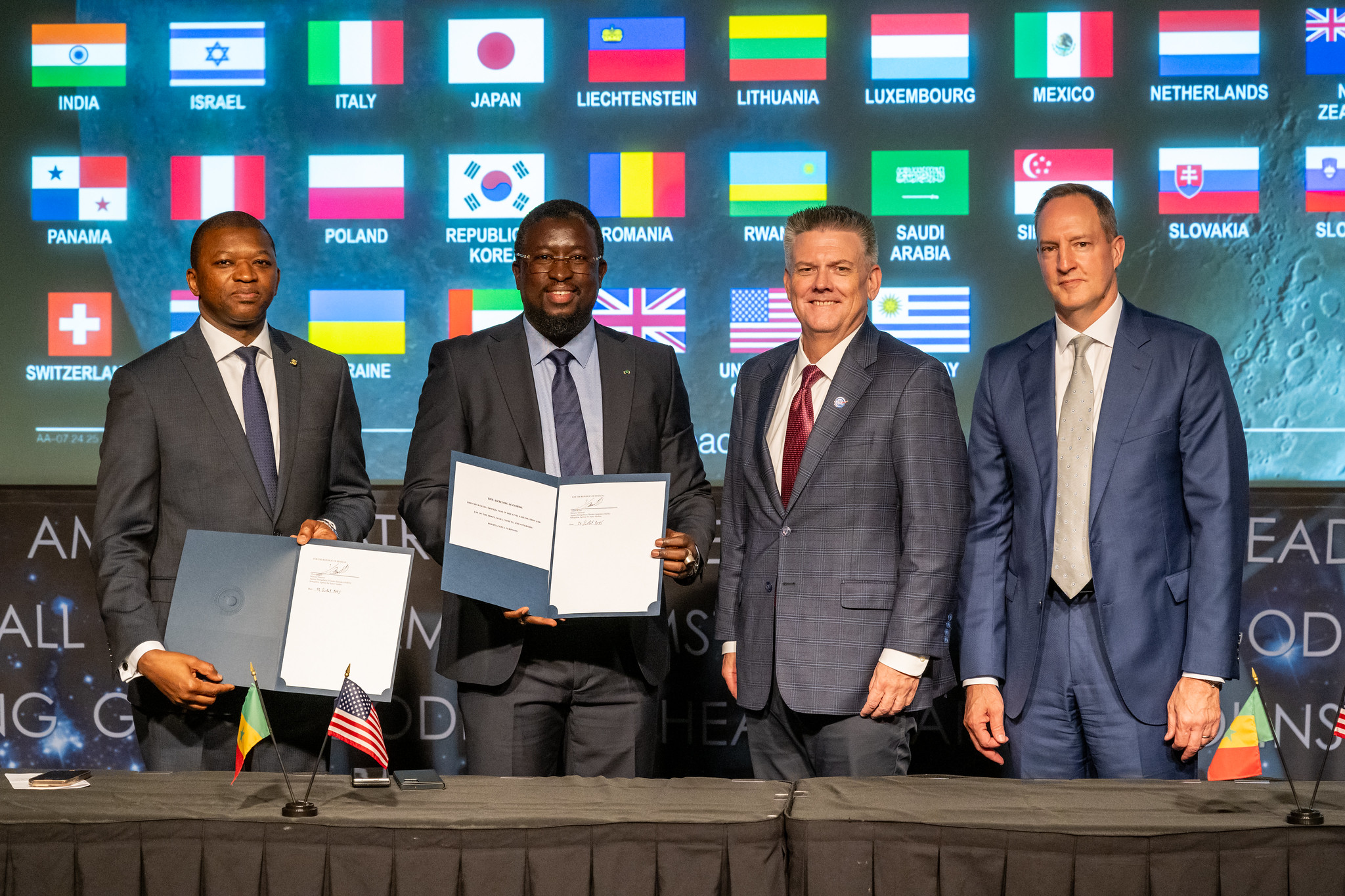
Senegal signed the Artemis Accords Thursday during a ceremony hosted by NASA at the agency's headquarters in Washington, becoming the latest nation to commit to the responsible exploration of space for all humanity.
"Following a meeting between Senegal President Faye and President Trump, today, NASA built upon the strong relations between our two nations as the Senegalese Agency for Space Studies signed the Artemis Accords," said acting NASA Administrator Sean Duffy. "With Senegal as the 56th signatory, I am proud to further President Trump's strong legacy of global cooperation in space."
Director General of the Senegalese space agency (ASES) Maram Kairé signed the Artemis Accords on behalf of Senegal. Jonathan Pratt, senior bureau official for African Affairs at the U.S. Department of State, and Abdoul Wahab Haidara, ambassador of Senegal to the United States, also participated in the event.
"Senegal's adherence to the Artemis Accords reflects our commitment to a multilateral, responsible, and transparent approach to space," said Kairé. "This signature marks a meaningful step in our space diplomacy and in our ambition to contribute to the peaceful exploration of outer space."
The Artemis Accords signing ceremony took place two weeks after President Trump's meeting in Washington with Senegal's President Bassirou Diomaye Faye and other countries of Africa focused on U.S.-Africa engagement.
Astronomers from Senegal have supported NASA missions by participating in multiple observations when asteroids or planets pass in front of stars, casting shadows on Earth. In 2021, NASA also collaborated with Kairé and a group of astronomers for a ground observation campaign in Senegal. As the asteroid Orus passed in front of a star, they positioned telescopes along the path of the asteroid's shadow to estimate its shape and size. NASA's Lucy spacecraft will approach Orus in 2028, as part of its mission to explore Jupiter's Trojan asteroids.
In 2020, during the first Trump Administration, the United States, led by NASA and the U.S. Department of State, joined with seven other founding nations to establish the Artemis Accords, responding to the growing interest in lunar activities by both governments and private companies.
The accords introduced the first set of practical principles aimed at enhancing the safety, transparency, and coordination of civil space exploration on the Moon, Mars, and beyond.
Signing the Artemis Accords means to explore peaceably and transparently, to render aid to those in need, to ensure unrestricted access to scientific data that all of humanity can learn from, to ensure activities do not interfere with those of others, to preserve historically significant sites and artifacts, and to develop best practices for how to conduct space exploration activities for the benefit of all.
More countries are expected to sign the Artemis Accords in the months and years ahead, as NASA continues its work to establish a safe, peaceful, and prosperous future in space.






